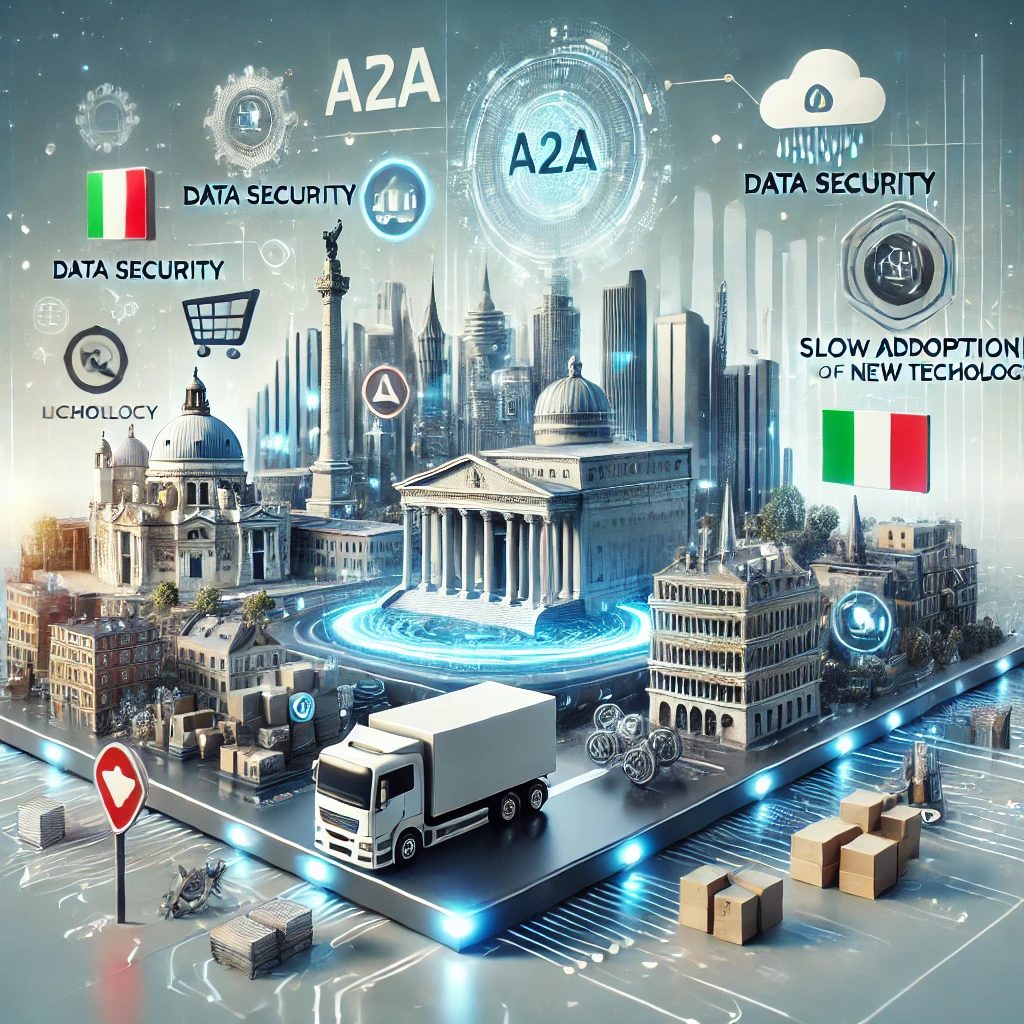
In Italy, the B2B (Business-to-Business) e-commerce sector is experiencing a contradictory and complex phase. On the one hand, our country stands out for having adopted cutting-edge digital solutions, such as electronic invoicing and digital preservation, and for a constant increase in investments in innovative technologies.
On the other hand, however, it struggles to keep up with global developments, positioning itself behind its main European and international competitors. This paradox creates a “two-speed” development dynamic, with some sectors experiencing strong expansion and others still tied to traditional methodologies that slow down their growth.
The context of B2B e-commerce in Italy
B2B e-commerce represents a crucial market for the Italian economy. According to data from theDigital B2B Observatory of the Polytechnic University of Milan, the value of Italian B2B e-commerce reached 265 billion euros in 2023, with a growth of 10% compared to the previous year. This figure represents commercial transactions between companies carried out digitally, i.e. those in which at least the order is exchanged in electronic format.
However, despite this progress, the ratio between B2B e-commerce and total transactions remains stagnant at 21%, a percentage that indicates how many digitalization processes have not yet penetrated in a widespread manner within Italian companies. This scenario highlights the existence of a gap between the market potential and the actual adoption of digital solutions by companies.
Factors that slow down the growth of Italian B2B
One of the main obstacles that slow down the growth of digital B2B in Italy is the lack of awareness and digital culture in many companies. Despite the growing offer of advanced technologies, many companies, especially small and medium-sized ones, are hesitant to undertake the digital transformation process. The reasons for this delay are various:
- Excessive costs: Many SMEs believe that the costs associated with adopting digital B2B systems are high compared to the potential benefits;
- Training and skills: The lack of adequately trained personnel to manage new digital tools is holding back innovation;
- Resistance to changeTraditional companies tend to remain anchored to consolidated operating models, fearing to upset consolidated balances and incur risks.
The areas of success of B2B e-commerce in Italy
Despite the difficulties, the Italian B2B e-commerce landscape is not without successes. The adoption of electronic invoicing, mandatory since 2019, marked a crucial turning point. Thanks to this innovation, Italy anticipated most European countries, demonstrating technological leadership that made it possible to improve the efficiency of administrative processes and reduce costs for companies.
Furthermore, the digitalization of processes electronic preservation has enabled companies to manage and archive their documents in a secure manner and in compliance with European regulations. These solutions, together with other innovations such as theeArchive (electronic archiving), can represent an opportunity for our country to emerge as a reference model at European level.
The paradox of the two-speed Italian market
As mentioned, Italy is therefore faced with an obvious paradox: on the one hand, Italian companies that have adopted digital B2B solutions are leaders in specific sectors, such as electronic invoicing, digital preservation and document management. On the other hand, there is still a large portion of the market that is reluctant to fully embrace digital transformation, thus slowing down the overall growth of the sector.
This “Two-speed Italy” is highlighted by data showing that only 35% of Italian companies transmit transport documents (DdT) in digital format, despite the possibility of doing so. This delay not only penalizes logistics efficiency, but also represents a missed opportunity to reduce costs and increase transparency of business processes.
Regulatory opportunities for Italy
Yet, on the regulatory front, there are several opportunities that Italy could seize to strengthen its role in the international B2B e-commerce landscape. The new version of eIDAS 2.0 (European Regulation on Digital Identity) introduces trust services such as eArchiving, whose mutual recognition between EU Member States opens up opportunities to consolidate Italian leadership in the field of electronic preservation.
Other regulations, such as the implementation of the eFTI regulation for the digitalization of logistics documents and the protocol eCMR for the dematerialization of consignment notes, could transform the Italian logistics sector, but only if the country is able to rapidly align itself with these standards.
Investments needed to overcome the technological gap
Unfortunately, a still significant portion of companies in our country are not able or willing to invest. But it is clear that the future of B2B e-commerce in Italy is the need to significant investments in innovative technologies. According to the Digital B2B Observatory, 79% of Italian companies say they want to invest in digital solutions, but 33% of them allocate less than 1% of their turnover to this purpose. This gap between intentions and actual investments risks compromising the growth potential of the sector.
Technologies that Italian companies will focus on in the coming years include:
- Electronic Document Management Systems (35%)
- Cloud Solutions (22%)
- ERP Systems (19%)
These investments represent a fundamental way to bridge the technological gap and ensure that Italy can compete with the main international players.
Conclusions
The future of B2B e-commerce in Italy is linked to the ability of companies to seize the opportunities offered by digitalization and emerging regulations. To overcome the paradox of the “two-speed” market, companies must be ready to invest strategically, adopting advanced technological solutions that make them more efficient and competitive. Only in this way will it be possible to transform Italy into a protagonist of global digital commerce.
What are you waiting for? Start investing today in innovative technologies for your B2B. Contact us for more information!






